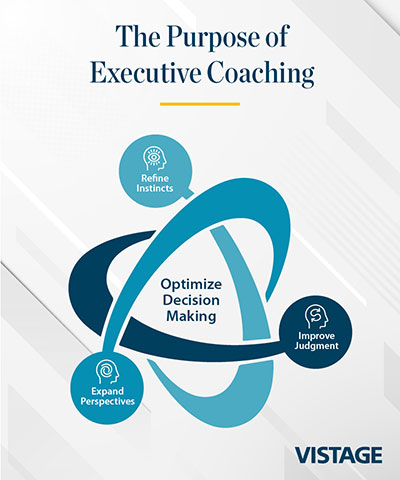Benefits of Executive Coaching
Executive coaching is a powerful tool that can help individuals in leadership positions enhance their skills, improve their performance, and achieve their professional goals. In this article, we will explore the numerous benefits of executive coaching and how it can contribute to personal and organizational growth.
Enhanced Leadership Skills
One of the primary benefits of executive coaching is the development of enhanced leadership skills. Through personalized coaching sessions, executives can gain valuable insights into their strengths and areas for improvement. Coaches guide effective leadership strategies, communication techniques, and decision-making processes. This enables executives to become more self-aware, adaptable, and influential leaders.
Improved Performance
Executive coaching can significantly contribute to improved performance in the workplace. By working closely with a coach, executives can identify and overcome performance barriers. Coaches help individuals set clear goals, establish action plans, and provide ongoing support and accountability. Through this process, executives can enhance their productivity, efficiency, and overall job performance.
Increased Self-Confidence
Executive coaching plays a crucial role in boosting self-confidence. As executives gain insights into their strengths and accomplishments, they develop a greater sense of self-assurance. Coaches also help individuals navigate challenges and setbacks, providing them with the tools and strategies to overcome obstacles. This increased self-confidence translates into improved decision-making, risk-taking, and overall professional growth.
Enhanced Emotional Intelligence
Emotional intelligence is a critical skill for effective leadership. Executive coaching focuses on developing and enhancing emotional intelligence, which involves the ability to understand and manage emotions in oneself and others. Coaches help executives improve their self-awareness, empathy, and relationship-building skills. This enables leaders to create a positive work environment, foster strong team dynamics, and handle conflicts more effectively.
Improved Work-Life Balance
Executive coaching also addresses the importance of work-life balance. Many executives struggle to find harmony between their professional and personal lives. Coaches work with individuals to identify priorities, set boundaries, and create strategies for achieving a healthy work-life balance. By prioritizing self-care and setting realistic expectations, executives can experience reduced stress levels, increased job satisfaction, and improved overall well-being.
Organizational Growth and Success
Executive coaching not only benefits individuals but also contributes to organizational growth and success. When executives enhance their leadership skills, improve their performance, and develop a strong sense of self-confidence, they become more effective in driving organizational change and achieving strategic objectives. This ultimately leads to improved employee engagement, increased productivity, and a positive impact on the bottom line.

Executive coaching offers a wide range of benefits for individuals in leadership positions. From enhanced leadership skills and improved performance to increased self-confidence and emotional intelligence, executive coaching plays a pivotal role in personal and organizational growth. By investing in executive coaching, individuals can unlock their full potential, drive positive change, and achieve long-term success.
Frequently Asked Questions
1. What is executive coaching?
Executive coaching is a professional development process that helps individuals in leadership positions enhance their skills, improve performance, and achieve their goals.
2. How can executive coaching benefit me?
Executive coaching can benefit you by providing personalized support and guidance to overcome challenges, develop new strategies, enhance leadership abilities, and increase self-awareness.
3. Can executive coaching help me improve my communication skills?
Yes, executive coaching can help you improve your communication skills by providing feedback, teaching effective communication techniques, and helping you develop a more impactful and influential communication style.
4. Will executive coaching help me become a better leader?
Absolutely. Executive coaching focuses on developing leadership skills, such as decision-making, delegation, conflict resolution, and strategic thinking, which can significantly improve your leadership effectiveness.
5. How long does executive coaching usually last?
The duration of executive coaching varies depending on individual needs and goals. It can range from a few months to a year or more, with regular sessions scheduled according to your availability.
6. Is executive coaching only for top-level executives?
No, executive coaching is beneficial for individuals at all levels of leadership, including middle managers, supervisors, and emerging leaders who want to enhance their performance and reach their full potential.
7. Can executive coaching help me manage work-life balance?
Yes, executive coaching can help you manage work-life balance by assisting you in setting priorities, improving time management skills, and finding strategies to achieve harmony between your professional and personal life.
8. How can executive coaching enhance my career progression?
Executive coaching can enhance your career progression by guiding setting and achieving career goals, developing leadership competencies, and increasing visibility and influence within your organization.
9. What makes a good executive coach?
A good executive coach possesses excellent listening and communication skills, a deep understanding of leadership dynamics, industry knowledge, and the ability to provide constructive feedback and support tailored to your specific needs.
10. How do I find the right executive coach for me?
To find the right executive coach, consider their experience, credentials, coaching approach, and compatibility with your personality and goals. Seek recommendations, conduct interviews, and ask for a trial session to assess the fit before making a decision.




